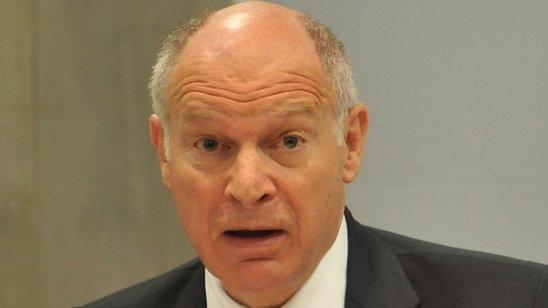Parents speak of legal fight for children without a lawyer
- Published
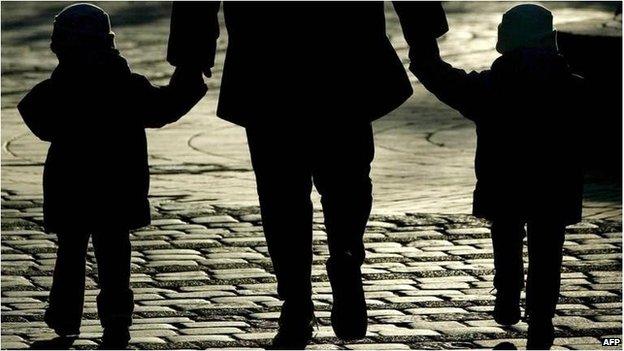
One parent said appearing in court without a lawyer can be "extremely stressful" and "demoralising"
"My daughter started school last month and I don't even know what school she goes to."
These are the words of a father who has not seen his daughter, now aged four, for two years.
He said his mistake was representing himself in court when his ex-partner, the child's mother, had a lawyer.
The father, who asked not to be named, said the judge denied him any contact - then told him to "stop wallowing in self-pity".
He said the court experience was "daunting" and he felt the judge "took advantage" of his lack of legal knowledge.
Since legal aid cuts in England and Wales in April 2013, thousands more parents have appeared in civil cases about children as "litigants in person" - meaning without a lawyer.
Of the 112,000 parties involved in cases which started in 2012-13, more than 58% had a lawyer, Ministry of Justice (MoJ) figures showed.
In the next 12 months - after the cuts - that dropped to less than 42%.
And new figures show less than 38% were represented by a lawyer in April to June this year.
One mother, who asked not to be named, said she was in "floods of tears" and had to compose herself before going in to court over contact with her two children - something she called a "matter of life and death" for a parent.
She said she had previously used barristers but having spent £7,500 in legal fees, she felt her lawyers had not represented her views "at all" - so she began representing herself.
"It was intimidating but I actually found not having a barrister was better because I could put my own case," she said.
The mother said she did "a lot of research" but being a litigant in person still took "real grit".
However she got the result she wanted, and her children now live with her during the week and with her ex-husband at weekends.

Marc Lopatin said ministers should "admit they got it wrong"
Brian, a father who asked for his surname not to be published, said he used a lawyer for the first six months of a legal fight with his ex-wife for contact with their two children - but bills were "adding up" so he began representing himself.
"The disadvantage you have is you don't know the law, the processes and the language that's used in court," he said.
"You can find that you've been left behind and something's been decided that you didn't understand."
But he said there were advantages of representing himself, such as having control over how his side of the case was handled.
Brian, who initially lost contact with his children but now sees them every other weekend, is still fighting for increased contact - and said he would now be "bankrupt" if he had used a lawyer throughout the "painfully slow" legal process.
He now helps other people representing themselves, and he said arguing against a lawyer for the right to see their children was "extremely stressful" and "absolutely demoralising for many fathers".
Figures show the number of men and women unrepresented has consistently been about equal.
'Hidden cost'
Susan Jacklin QC, chairman of the Family Law Bar Association, said barristers who have appeared against litigants in person often found them "rather at sea" - for example they were unaware of legal principles and what constituted relevant evidence.
"Some barristers have said to me they felt that the other party didn't in reality have a fair hearing," she said.
She said she was hearing of "more and more" parents giving up on the legal fight to see their children - which she called the "hidden cost" of the drive to cut legal aid.
Single parents' charity Gingerbread said its helpline had received hundreds of calls from parents unable to get legal representation.
"Ultimately, parents are finding themselves stranded without access to the legal protection they need for themselves and their children," a spokeswoman said.
Elsewhere, shadow courts minister Andy Slaughter said the rise in unrepresented parties in the courtroom was "putting further strain on an already over stretched legal system".
Drop in mediation
But an MoJ spokesman said a "large number of people have always represented themselves" and judges are trained to support them.
He said the government wanted people to use mediation rather than the "confrontational and stressful experience" of court, and the law had been changed so people must consider mediation before going to court over child or financial matters.
Mediation is where splitting couples hold meetings with an impartial professional, to reach an agreement.
"Millions of pounds of legal aid remains available for family mediation, external and for legal advice to support family mediation," he added.
But Legal Aid Agency data, external shows use of mediation has fallen.
Last year the government admitted it had been taken by surprise by the fall in demand for mediation and was "looking at how we can address the issue".
In April to June this year 1,778 couples started mediation - down from 2,706 in the same period in 2013 and 3,566 in April to June 2012.
Marc Lopatin, founder of Lawyer-Supported Mediation, said the government needed to "incentivise legal aid lawyers to support the process".
"Ministers should admit they got it wrong," he said.
"They need to stop seeing lawyers and mediators as an either or.
"Both professionals working in tandem can keep families out of court and promote the interests of the child."
Jerry Karlin, chairman of charity Families Need Fathers, said falling numbers of parents attending mediation or court meant "many children may be losing out on relationships with their parents unnecessarily".
- Published2 September 2014

- Published16 July 2014

- Published19 October 2013
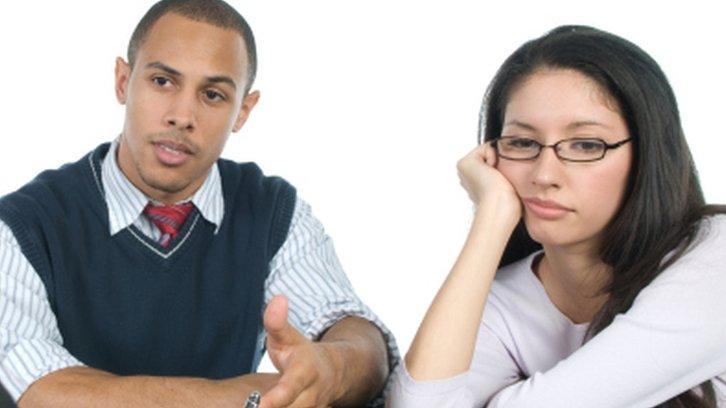
- Published18 June 2013

- Published1 April 2013
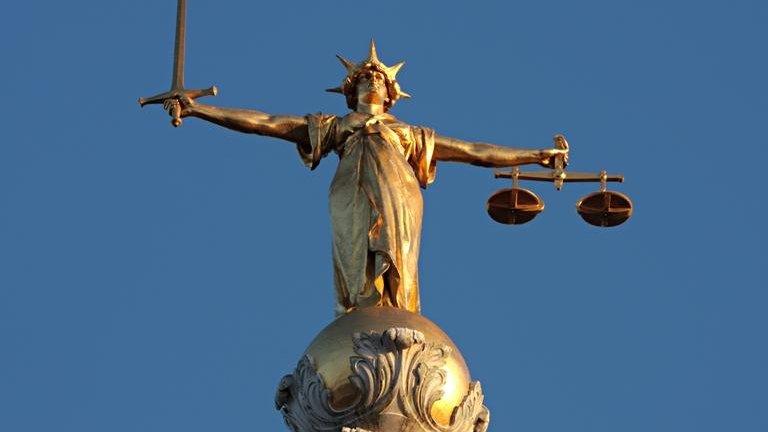
- Published20 March 2013
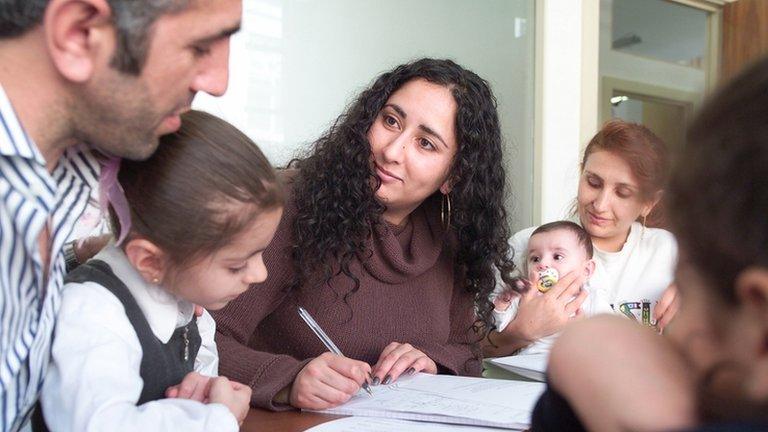
- Published5 March 2013
